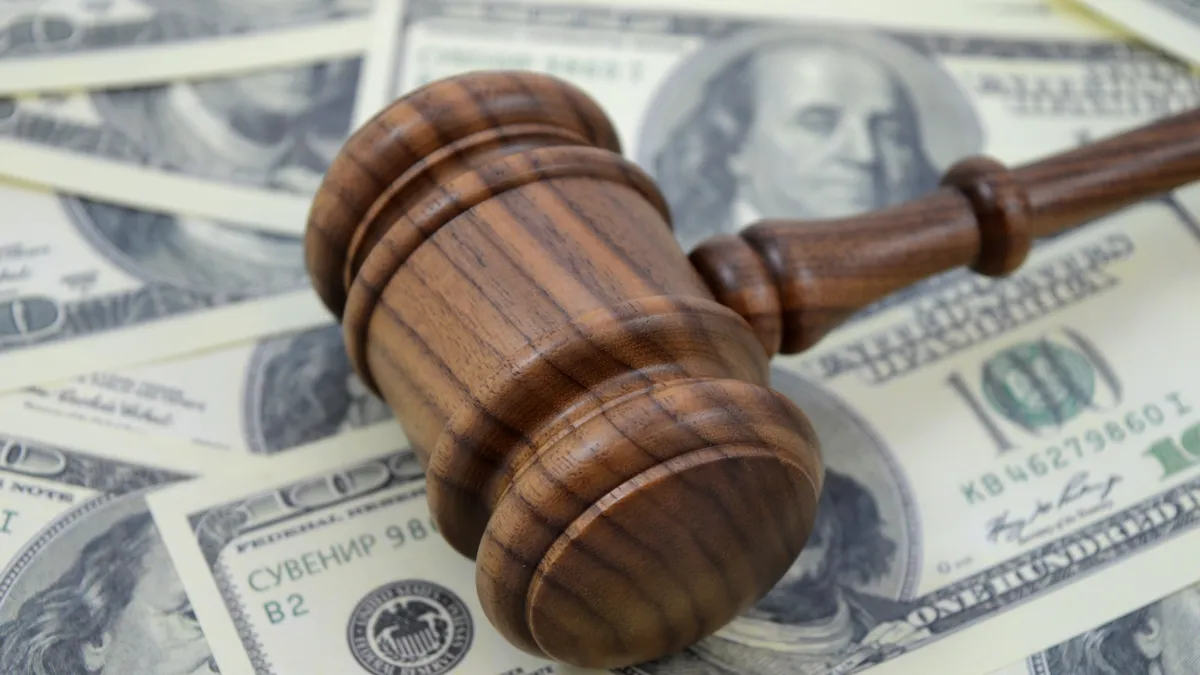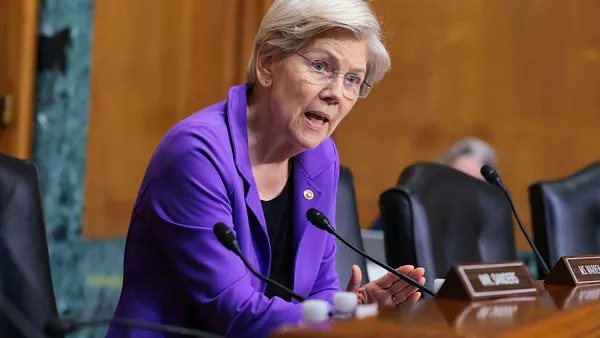Dive Brief:
-
A Manhattan federal jury on Wednesday convicted Sung Kook “Bill” Hwang, founder of Archegos Capital Management, on 10 of the 11 charges he faced, including fraud.
-
Co-defendant Patrick Halligan, Archegos’s CFO, was convicted on all three counts he faced, including fraud and racketeering.
-
Archegos’ collapse led to roughly $10 billion in losses for investing banks. Credit Suisse, which has since been acquired by UBS, suffered $5.5 billion in losses from the private investment firm’s 2021 collapse. Japan’s Nomura, meanwhile, lost nearly $2.9 billion.
Dive Insight:
After deliberating for a day and a half, the jury delivered the verdicts Wednesday, ending an eight-week trial. Hwang and Halligan will be free on bail until sentencing, set for Oct. 28.
The executives face up to 20 years for each count on which they were convicted. However, the judge's sentence could be lesser and depend on several factors.
Prosecutors argued that Hwang and Halligan misled banks to secure billions of dollars in loans that were used to artificially inflate stock prices. They asserted that Hwang covertly accumulated large stakes in companies without direct stock ownership by using derivative positions and loans provided by Wall Street banks.
With Archegos's sudden downfall, Hwang lost most of his personal assets and dragged down the prominent Wall Street players, including Morgan Stanley, which helped in the firm’s trading.
Credit Suisse’s $5.5 billion loss from Archegos exposure arguably hastened the lender’s failure. The Federal Reserve has fined UBS $268.5 million over “unsafe and unsound counterparty credit risk management practices” between Credit Suisse and Archegos. Credit Suisse failed to adequately manage Archegos's risk despite repeated warnings, the central bank asserted.
During the trial, Hwang’s lead attorney, Barry Berke, claimed his client “bought these stocks because he loved them” and alleged that the U.S. government did not have any theory to prove how Hwang would benefit from inflating positions in certain companies, the Financial Times reported.
“This verdict should send a resounding message that this office will continue to police the financial markets with an eagle eye and swiftly hold accountable those who think they can cheat the system,” Manhattan U.S. Attorney Damian Willams, whose office brought the case against Hwang and Halligan, said in a statement seen by Bloomberg.
Hwang faced multiple criminal charges, including one count of racketeering conspiracy, three counts of fraud and seven counts of market manipulation.
Though he pleaded not guilty to all charges, he was found guilty of 10 and acquitted on one count of market manipulation related to iQIYI, a Chinese online video company. Halligan was found guilty on three counts including racketeering and fraud.
Though Berke did not immediately comment on the verdict, Mary Mulligan, a lawyer for Halligan, told The New York Times they intend to appeal.
Prosecutors charged Hwang and Halligan a year after Archegos’ collapse. The firm's head trader, William Tomita, and chief risk officer, Scott Becker, testified against their former bosses and pleaded guilty to related charges.
Hwang’s financial career had been a bumpy one from the beginning. He worked at Tiger Management, Julian Robertson's renowned hedge fund, and founded Tiger Asia Management in 2001. Though the company experienced rapid growth initially, it faced financial losses and regulatory issues in Hong Kong and the U.S., leading to the closure of operations in 2012. Hwang pleaded guilty to wire fraud related to the illegal trading of Chinese stocks and settled U.S. insider trading charges by paying $44 million.
He converted Tiger Asia into a family business in early 2013 and renamed the firm Archegos Capital Management.














